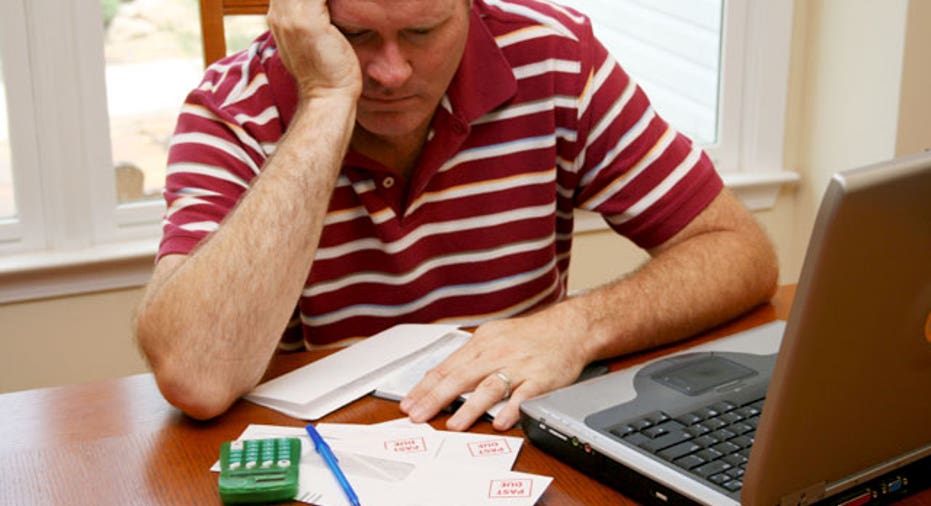In Hard Times, Keeping Credit Lines High May Trump Paying Off Debt

Dear New Frugal You,
I'm afraid for my finances. My job doesn't look that steady, and my home and retirement accounts have taken a tumble. So we've started saving more money. What's the best way to use those savings in this economy?
-New Saver
Dear New Saver,
New Saver, you're not the only one who is changing spending habits as a response to the new economy. That's a very rational response to a loss of net worth and concern about our jobs. It's not surprising that we've become a nation of savers again.According to the Bureau of Economic Analysis, America's personal savings rate has jumped from around 2% in 2005-2007 to more than 5% from 2008 until today.
You ask an important question: What should you do with the money that you're saving? Let's see if we can't sort out some options for you.Ideally, you can put that money into savings and build up an emergency fund. Interest rates for savings are pitifully low right now, but your main purpose isn't to maximize interest. It's to guarantee that the principal will be there if you have an emergency (such as losing your job).If you've already built up an emergency fund, the next step would be to build your retirement account, whether it's in an IRA, a 401(k) or similar fund. Depending on your age, you may want to be somewhat more aggressive in investing those funds. Consider stock mutual funds. The goal here is to see those funds grow until you need them years from now.On the other hand, if you owe money, normally, you'd want to pay off the most expensive debt that you have. Usually that's your credit card balance, followed by car loans and finally your mortgage.When you do repay loans, you'll reduce the amount of interest that you owe each month. That will gradually increase the amount of savings you have available, which is good. You'll be surprised at how fast the balance drops.But here's some contrarian advice: Given early 2011's shaky economy and the way banks have responded to it, repaying loans might not be the best strategy now.According to FICO, the company that pioneered credit scores, more than one consumer in seven uses 80% or more of their credit limits.Why does that matter? Banks issuing credit cards have been aggressive about reducing credit limits. You may have already gotten a letter from them advising that your limit has been slashed.If you pay down your balance, your bank could reduce your available credit in a practice called "chasing the balance" -- every time you reduce your balance, the bank cuts your credit limit a corresponding amount. Reducing your limit is not such a big deal unless you lose your job and need to use credit cards to supplement your savings and unemployment checks.There's no easy way to determine how likely your bank is to reduce your credit line. If you live in an area where home prices have tumbled or unemployment is above the national average, it's more likely to happen.So even if you have credit card debt, the current economy may change your strategy. It may be that your best move is to stash the extra savings away in a savings account or CD, at least until you have enough saved to handle your expenses for six months or so.Clearly there's a cost to this strategy. Instead of reducing 14% credit card balances, you'll be earning 1% or 2% on savings. That's quite a difference. But, if you're concerned about losing your income, it is worth considering.Remember that having a ready source of funds available could be critical. If you lose your job, unemployment may not be enough to cover all your expenses -- at least until you cut spending. You'll be glad to know that you have an emergency fund (first choice) or available credit to help pay your bills temporarily.
I hope your job will become more secure and you can reallocate your extra savings to debt repayment soon!
More from CreditCards.com:



















